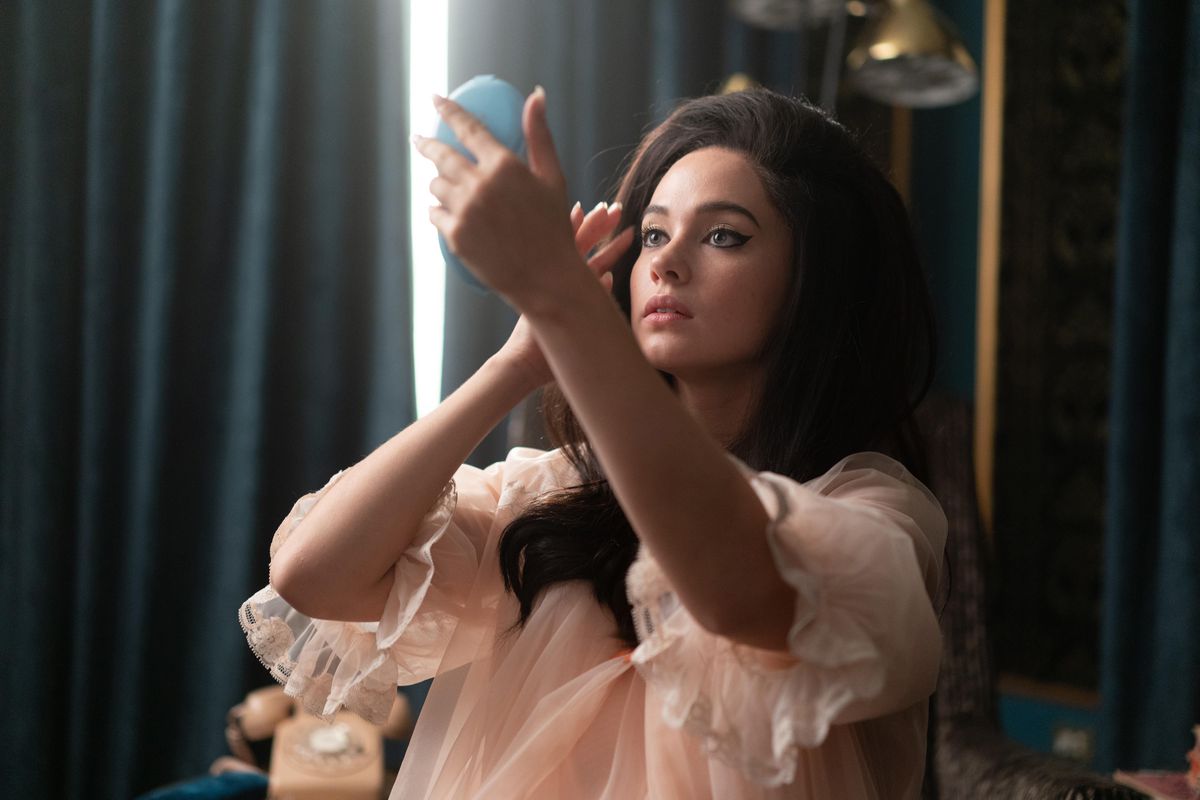Elvis, and his rise to fame has been retold time and time again. There have been books, novellas, documentaries, and most recently the biopic produced by Baz Luhrmann, “Elvis”. People have retold and recounted the many ways that Elvis struggled, that Elvis succeeded, and that Elvis ultimately fell from glory. However, for as many times as Elvis’s story has been passed around, Priscilla Presley is often a cliff-note to his tales of glory. Her story, however, has been finally retold in Sofia Coppola’s film, “Priscilla”.
While the film released recently last year, on November 3, it’s reach has still been expanding as more and more people are viewing it. The story is not of Elvis, or his triumphs and defeats — but the isolation and objectification that Priscilla experienced as a result of his actions. The movie follows the courtship of Priscilla and Elvis, and the way their relationship evolved into a turbulent and unstable relationship. Priscilla and Elvis meet in a germany army base, where she is in highschool and he is beginning to blossom into a rock-icon. They travel to Graceland, where Priscilla begins to realize that she is a prisoner in a house that Elvis keeps her in.
Cailee Spaeny, who plays Priscilla Preseley, displays her childlike wonder toward Elvis and how it gradually evolves into a deep betrayal. The film works wonders with the idea of show, not tell — as Spaeny portrays the moments of pure pain and raw emotion that Priscilla has. She navigates through her journey, together yet alone. Spaeny’s ability to bring the viewer into the shoes of Priscilla, and display the passionate loneliness that she experiences, is palpable. Balancing Spaeny’s acting, Jacob Elordi portrays wonderfully the extent of Elvis’s influence and control over Priscilla. The intensity, the frustration and regret of Elvis’s character is communicated through Elordi, even in the simplest of movements.
Regardless, the narrative that is told throughout “Priscilla” is transformative. It utilizes moments in the film where words do not need to be said, because Spaeny’s expression says it all. The climatic points in the film, where you can feel the despair that Priscilla feels, are what truly get to the viewer in a way that not most biopics can. “Priscilla” makes it clear that it is not a story of only the ups of their relationship, but the horrible and tortuous lows. We are shown slivers of painful memories, and most of all, the predatory relationship with no passion nor sanctity for Priscilla. “Priscilla” pushes the subtle reminder that love is not love when it comes with chains. The fantasy and idyllic version of Elvis that Priscilla believed him to have been, is shown to be torn apart and shredded until it is replaced by the reality of a brutal man. Elvis in this story is far from the doe-eyed, starstruck underdog that Baz Luhrman painted in his biopic. He is a man aware of his actions, his influence, and his unfaithfulness. He was deeply flawed, and used it as an excuse to keep Priscilla in his grip.
The production and costumes do not disappoint either. In fact, the evolution of Priscilla and her own style is part of what makes the movie so impactful. Priscilla is transformed from a youthful little girl, to a woman who was stripped of her identity and left with nothing. It displays her trauma perfectly through what she wears, how she displays herself, and even her body language. It is a movie that is entirely unapologetic in its portrayal of abuse, and the criticism of Elvis that it puts forward. “Priscilla” is ultimately a film that highlights that a golden cage is still a cage — and love cannot justify that.


